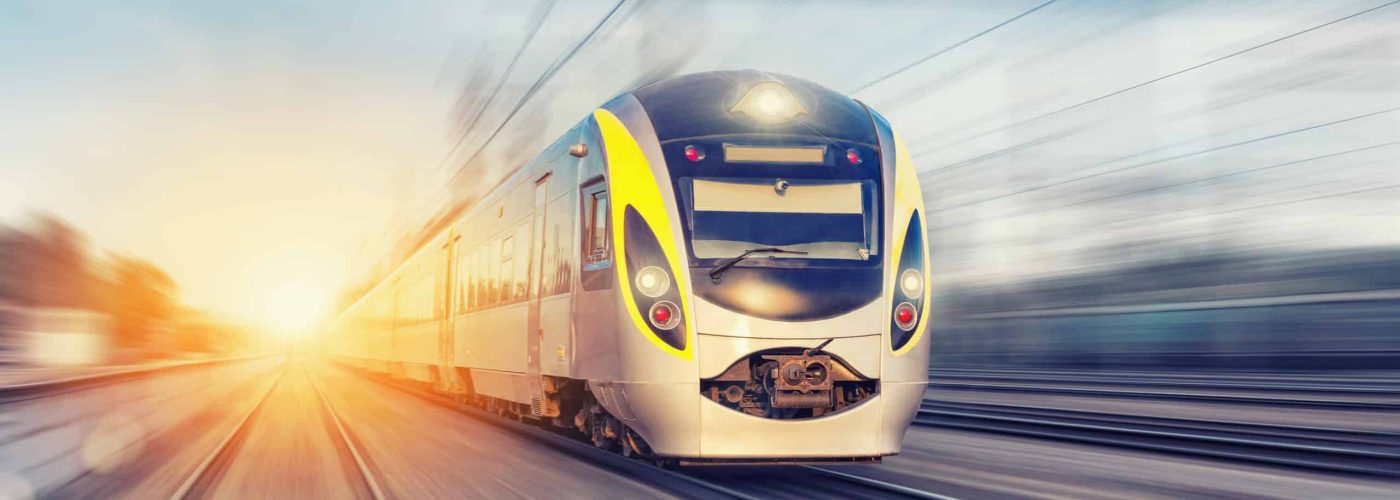- Innovation initiative targets diversity-focussed companies in latest recruiting round to help drive development of UK SMEs
- Of the Innovation Accelerator’s third cohort, two of the five SMEs have female CEOs or founders, and three have BAME CEOs or founders
HS2 Ltd has launched a new phase in the development of the UK’s SME tech sector with the opening to a third cohort of its successful Innovation Accelerator programme, delivered in partnership with Connected Places Catapult and Bruntwood SciTech.
The company delivering Britain’s new high speed rail network took a conscious decision to reach new and diverse thinking by focusing on small digital and data technology firms and building strategic partnerships with diversity-focused entrepreneurial SMEs.
Putting measures in place to champion equality, diversity and inclusion, such as assessing applications blind and anonymously, enabled HS2 to secure a diverse talent pool. As a result, two of the third cohort’s five SMEs have female CEOs or founders, and three have BAME CEOs or founders.
HS2 Ltd Innovation Manager, Rob Cairns said:
“With the third cohort intake we focused on reaching a diverse range of businesses who we believe can bring fresh thinking and a new perspective to our mission of reducing HS2’s carbon footprint and improving the health and safety of our teams, as well as the security of our worksites.”
Entering the Accelerator in August, the five firms were chosen to develop techniques for designing carbon out from the railway and to monitor and improve site safety and security. As one of the most sustainable high speed railways in the world, HS2 will support the UK in making the transition to a net zero carbon economy. It has set a commitment to reduce the carbon impact of construction on the project by 50%, as well as delivering low carbon journeys and cutting carbon emissions from other forms of transport.
The Innovation Accelerator’s new entrants are:
Looper, established by Yiqiang Zhao, is developing cutting-edge technology that analyses designs to ensure that the plans and materials use the least-carbon intensive options. HS2 Ltd believes the technology can be refined on Phase One of the project and deployed across later phases.
Looper’s founder, Yiqiang Zhao, said:
- “The HS2 Accelerator provides an ideal platform for us to further validate, fine-tune and embed our solution into the biggest infrastructure project in Europe. It’s a great opportunity for us to help HS2 contractors automate carbon tracking and calculations through the design and build. In the four months of the programme, we hope to secure a pilot project and seek fundraising.”
MachineMax is developing technology to monitor and improve the operating efficiency of worksite plant and machinery. It will identify where assets are working below capacity in order to cut emissions, accelerate works programmes and reduce costs. A key feature of Machine Max’s software is that it is “agnostic”, meaning it can be used on any make of site equipment.
MachineMax CEO Shweta Saxena said:
- “We are so excited to be in Cohort 3 of the HS2 Accelerator. It is a great opportunity to work with best in class professionals and be part of the innovation that will leave a legacy in the UK for years to come. Our goal is to integrate MachineMax across the HS2 digital ecosystem and connect the entirety of the fleet to monitor and improve on-site emissions and efficiency.”
Tended, founded by Leo Scott Smith when he was aged 22, enters the Innovation Accelerator to develop wearable technology for worksite teams. It works to improve worksite safety practices with a buzz to alert the wearer to a potential risk. In addition, by feeding the risk alerts back to a central database, the programme can build a site map and identify if hotspots are occurring so that the repeated risk can be remedied.
Tended founder Leo Scott Smith said:
- “We’re very excited to be working with HS2. We share the ambition to transform safety on site and set the standards for others to follow. Working with HS2, we believe that Tended’s blend of technological capability and deep understanding of human behaviour can revolutionise site safety for HS2 and its supply chain.”
FYLD’s technology uses artificial intelligence, language processing and machine learning to inform site teams’ safety, quality and productivity decisions. The solution’s safety features include high-risk job alerts and proactive fatigue management. Equipping teams with these data-driven actionable insights delivers safer, more productive, and environmentally-friendly operations.
FYLD CEO, Shelley Copsey said:
- “We are confident that as the UK accelerates the progress of one of the most exciting transport projects in Europe, our technology will have a transformative impact on field workers and rail businesses alike. We’re looking forward to collaborating with both HS2 Ltd and the other cohorts as part of this programme as we make an impact through increased efficiencies, improved health and safety, and a lower carbon footprint.”
Sensing Feeling’s solution for de-risking construction sites uses advanced sensing software powered by computer vision and machine learning to detect how people, machines and vehicles behave in real-time.
Founder Jag Minhas said:
- “We’re super-excited to be joining some really smart companies in bringing innovative technologies to HS2. We’re looking forward to working with potential ecosystem clients and cohort collaborators to accelerate the use of advanced sensing products to make places safer for workers and customers.”





